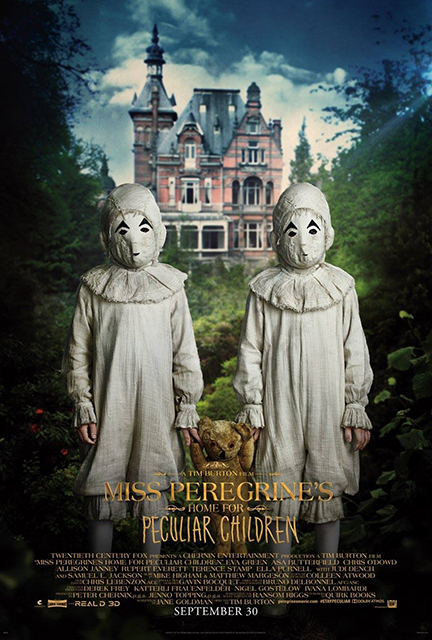Tim Burton has established himself as a visual mastermind, creating amazing characters in vivid worlds. However, he struggles with properly developing his geniously devised characters in the midst of beautifully bizarre storylines. Much of the same occurs in his recent “Miss Peregrine’s Home for Peculiar Children.”
magical dreamscapes
By no means will this movie stand as lousy. In fact, one can go as far to pin “Miss Peregrine’s Home for Peculiar Children” as one of Burton’s more rewarding in recent memory.
Starting with the positive aspects of this film, Burton remains the alchemist behind a film featuring dismally surreal, yet magical dreamscapes. The stunning long shots of dreary Welsh scenery and clever jump cuts bode well, executed by expert cinematographer Bruno Delbonnel.
The Tim Burton who won audiences over during yesteryear prevails momentarily, masterfully weaving stop-motion into live-action. This makes for scenes so unsettling that viewers yearn for more as they take older audiences back to the director’s “Beetlejuice” days.
A revitalized Burton awards audiences with lively and invigorating dark comedic aspects in the midst of an unnerving atmosphere. However, mediocre Burton produces an unnecessarily slow movie with few silver linings whittled in. With “Miss Peregrine’s Home for Peculiar Children,” Burton exposes a mediocre and mere shell of his enchanting self.
Frustrating dialogue
Samuel L. Jackson’s Mr. Barron and Eva Green’s Miss Peregrine orchestrate many instances where liveliness and energy prevail. Representing the lone dark comedic aspect in the film, Jackson’s character certainly provides a breath of fresh air, but suffers from a dire lack of substantial development. Green delivers a foreboding yet charismatic rendition of Mary Poppins, criminally restrained from lifting this film into notoriety. Miss Peregrine could have become another iconic character among those Burton produced in his more exemplary films. Unfortunately, Burton missed a great opportunity to capitalize on Green’s superb talent.
The most frustrating aspect of the film lies in the dialogue between Jake, played by Asa Butterfield, and his father, played by Chris O’ Dowd. Some particularly clumsy moments of dialogue between the two amount to erroneous attempts at prompting emotional responses from the audience, but viewers only become less engaged as these ill-fated scenes continue.
The dialogue between Jake and the peculiars proves different. Their interactions actually have purpose and produce a lively vibe. If Burton intentionally contrasted the dialogues Jake has with regulars and peculiars as a means of emphasizing Jake’s comfortability and place as a peculiar and not as a regular, then Burton’s genius has reached a new level. Until then, the direction behind the dialogue will remain ambiguous and sloppy.
Ultimately, Tim Burton’s “Miss Peregrine’s Home for Peculiar Children” does not signify a return to his genius form. However, his latest release certainly has enduring worth, just entertaining enough to keep audiences on their toes for something surpassing in the future.







